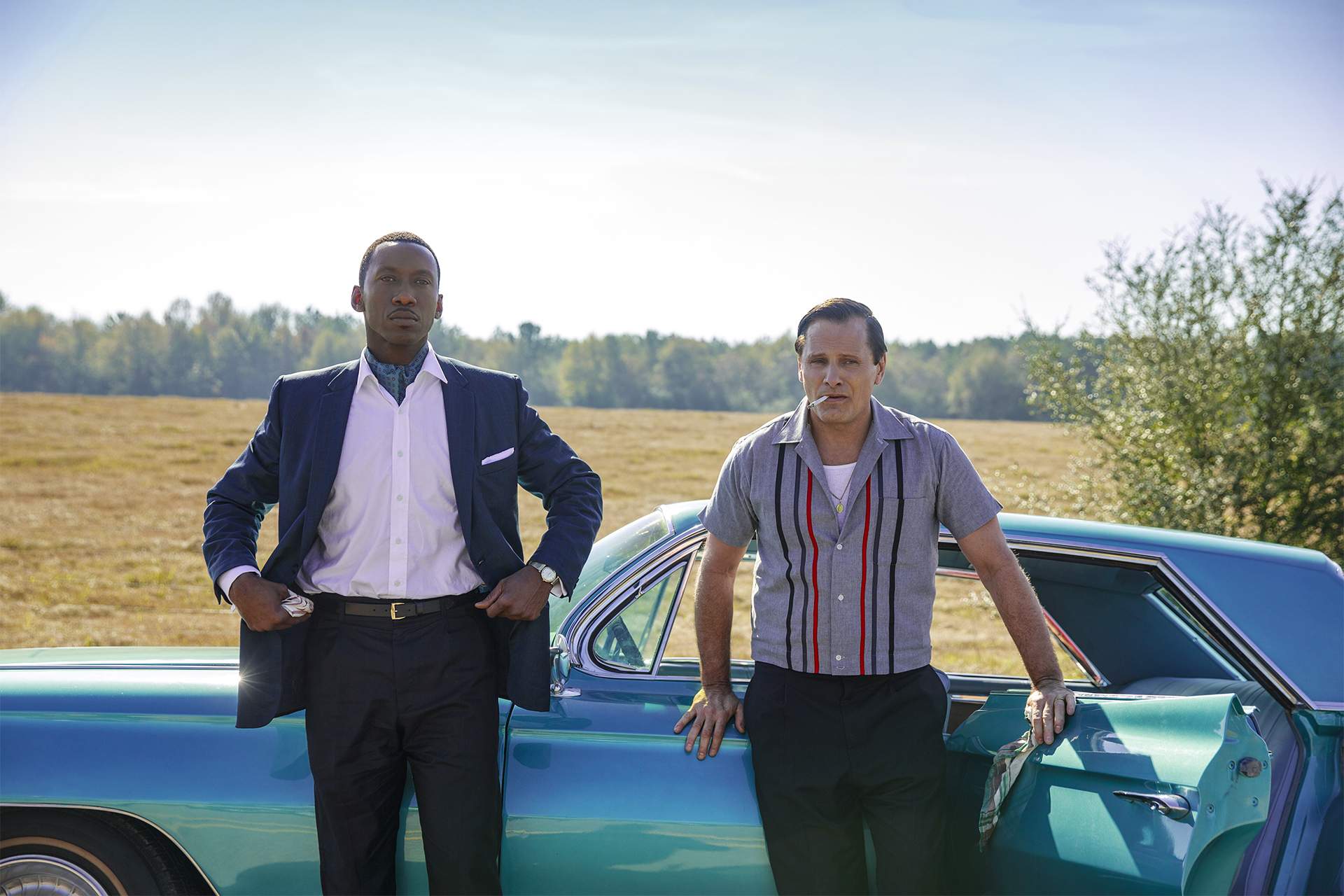Green Book
This Oscar-nominated race-relations drama boasts excellent performances and warm intentions, but still remains problematic.
Overview
From the director of Dumb & Dumber, There's Something About Mary and Shallow Hal comes a race-relations drama with five Academy Award nominations to its name. Only a handful of years ago, that would've seemed like one of the most unlikely sentences in the film industry. But Green Book is a Peter Farrelly movie through and through, even if no one gets their tongue stuck to a frosty pole, uses an unconventional type of hair gel or dons a fat suit. It might take its real-life tale seriously, however the same simplicity — and the same penchant for upbeat, easy sentiment — that has characterised the director's filmography remains.
Taking to the road across America's Deep South circa 1962, Green Book follows a journey within a journey. As revered classical musician Dr. Don Shirley (Mahershala Ali) and his hired chauffeur Tony Lip (Viggo Mortensen) venture from town to town on a piano recital tour, this odd couple ventures towards an unexpected friendship. Painfully aware of the discrimination of the time, the reserved, refined Shirley understands the need for a chaperone, but is hardly accustomed to some of his driver's behaviour. For the mouthy, uncouth Lip, a New York bouncer who's happy to treat African-Americans the same way he'd treat an unruly bar patron, working for a black man likewise takes some getting used to.
Co-writing the screenplay with Brian Currie (also one of the film's producers) and Nick Vallelonga (son of Tony 'Lip' Vallelonga), Farrelly throws up plot developments like his characters throw fried chicken scraps out of the car window. That's one of Green Book's big scenes, and it's tossed in breezily but lands with a thud. The same is true of much of the movie. Simultaneously light and overt, and shot and styled in the same way, this is a picture that ticks all of the obvious boxes, charts all of the predictable developments and services all of the expected messages. It has a heart, as do most of Farrelly's films, yet it always seems like it's expending most of its energy on stressing its feel-good importance. While scenes that show Tony learning to overcome his own prejudice, saving Shirley from violent attacks and teaching him that stereotypical aspects of black culture may have a basis in truth, they also feel carefully calculated to further the picture's overall vibe.
A film that makes Lip the protagonist and Shirley the supporting player, Green Book is also a film that's willing to shape the details to suit its smooth angle on reality. That's far from uncommon in the "based on a true story" game, but even if controversy hadn't sprung up about the handling of specific aspects of Shirley's life (with his family contesting some elements), the movie would've still felt massaged for mass consumption. Indeed, Farrelly has a mould that he's trying to fit, earning and thoroughly deserving the label of this year's Driving Miss Daisy. It's also this year's The Blind Side, aka a picture where a person of colour's narrative is framed through their relationship with a helpful white friend, or saviour.
Green Book's questionable approach would've always been apparent, but it perhaps cuts deeper because of the film's biggest success: its performances. Oscar-nominated for their respective roles, Mortensen and Ali truly make the best of the material at their disposal. More than that, they exceed it — as you'd expect from both. In Mortensen's case, there's a welcome looseness to his take on Lip that never feels like he's forcefully pushing buttons or hitting marks, even though the script always is. With likely two-time Best Supporting Actor winner Ali, there's soulful elegance, resounding dignity and quiet vulnerability to his portrayal of Shirley, giving the man what he deserves even if the film around him doesn't. Although a great movie could be made starring the pair, this isn't it. Instead, they lift a polite hug of a picture, one that boils down good intentions to the easiest, most conventional elements.





